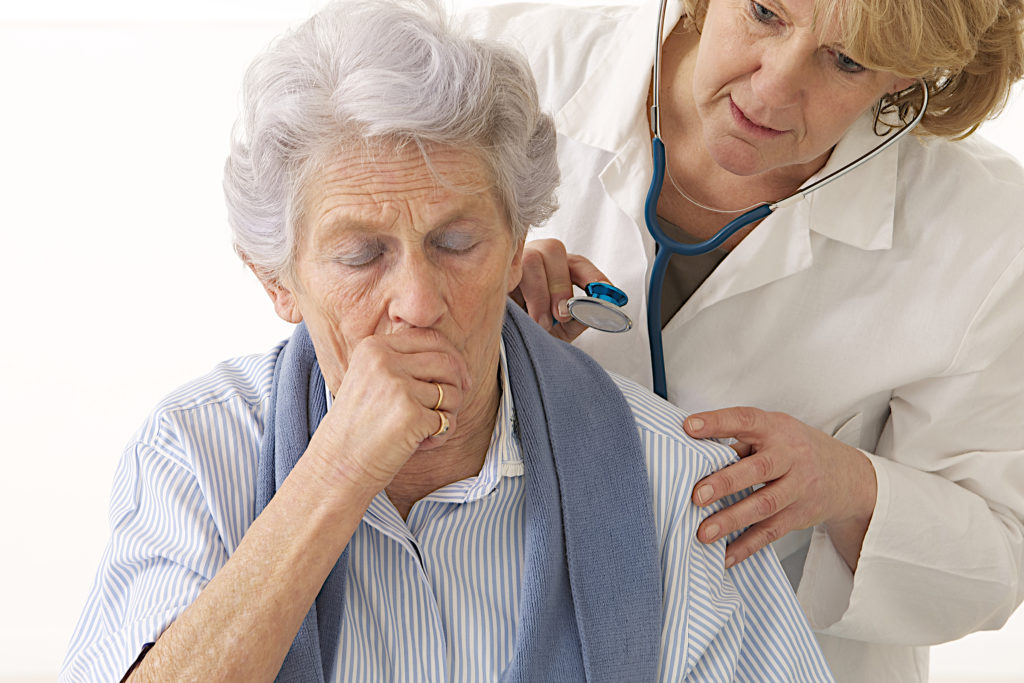Aging Puts Stress on the Health of Your Lungs
Your lungs have two important jobs. One is to take in needed oxygen. The other is to expel unnecessary carbon dioxide. As we age our lungs have to work a little harder due to changes in the nervous and the immune systems.
In older persons the part of the brain that controls breathing may lose some of its function making breathing more difficult. Nerves in your airways that trigger coughing are not as sensitive as before to particles that can collect such as smoke or germs. With age, a weaker immune system affects the health of your lungs. Your lungs are less able to fight off infection and to recover after exposure to smoke and other harmful particles.
Increased Risks for Older Adults
- Infections of the lungs, such as pneumonia and bronchitis
- Shortness of breath
- Low oxygen level, which reduces the body’s ability to fight diseases
- Abnormal breathing patterns, resulting in problems such as sleep apnea (episodes of stopped breathing during sleep)
Congestive Heart Failure (CHF)
CHF is a chronic condition in which the heart doesn’t pump blood as well as it should. Heart failure can occur if the heart cannot pump or fill adequately. Symptoms include shortness of breath, fatigue, swollen legs and rapid heartbeat.
Chronic Obstructive Pulmonary Disease (COPD)
COPD blocs air flow. The most common COPD conditions are due to emphysema and chronic bronchitis often caused from consistent exposure to certain environmental factors like dust or chemicals at work and air pollution. Damage to the lungs from these cannot be reversed. But rescue inhalers and inhaled or oral steroids can help control symptoms and minimize breathlessness and further lung damage.
How Can I Live Better With CHF or COPD?
Be sure to take your medicine as prescribed. There are so many medicines like diuretics, beta blockers, ACE inhibitors, vasodilators, blood pressure and heart medications that help with CHF. Some CHF patients will need a defibrillator or pacemaker to keep the heart pumping regularly. Bronchodilators and steroids help with COPD. Supplemental oxygen may be needed for better breathing.
How Can I Prevent Unnecessary Damage To My Lungs!
Get a flu and pneumonia vaccine.
Here are some suggestions to improve the function of your lungs:
- Get 20 to 30 minutes of aerobic exercise daily for CHF.
- Don’t smoke! This applies to both CHF and COPD patients.
- Lose weight to avoid the complications of obesity. This is good for everyone!
- Cut back on salt to no more than 2,400 mg/day for improved heart health.
- COPD patients might want to learn yoga breathing techniques to improve airflow.
MOTHER’S DAY IS MAY 13! DON’T FORGET MOM!










Comments are closed.